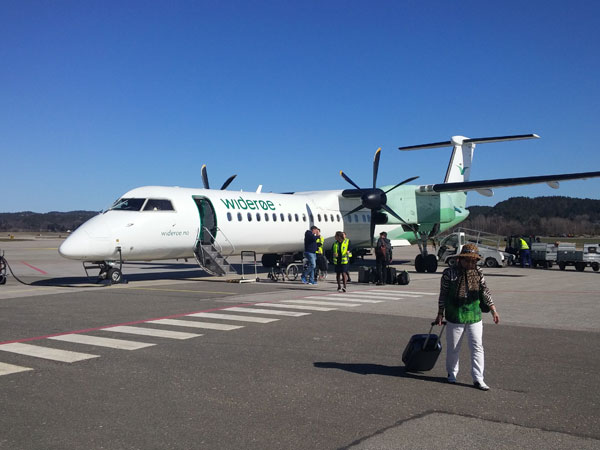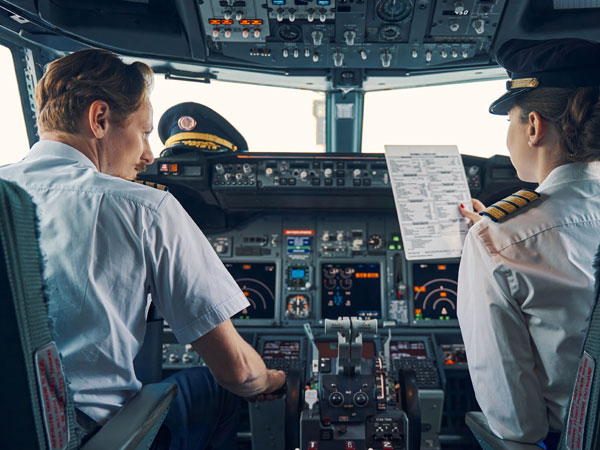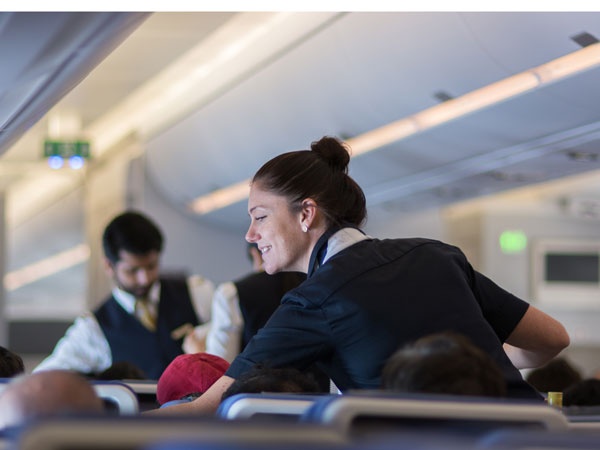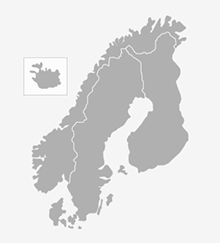The Europeanization of the aviation market has put strong competitive pressure on all stakeholders. As a result, Norwegian cabin crew have become a low-paid occupational group. Conditions are worsened by part-time work, and few Norwegians are staying for long in the occupation.
This is one of the findings in a recent report from the Norwegian Institute of Transport Economics (TØI). The study has examined how the aviation industry in Norway is organised today and how the sector can be organised differently within the EEA regulations, in order to ensure decent pay and working conditions for pilots and cabin crew.

As a result of the EU/EC’s three aviation packages in 1986, 1990 and 1992, the EEA area became a common aviation area with harmonized regulation. Through the EEA agreement Norway gained access to the EU’s aviation market as an equal partner. Liberalisation led to strong growth in route offers, freight and passenger transport, as well as cheaper tickets for consumers and the establishment of several low-cost airlines.
According to the findings, the majority of Norwegian and European aviation employees are directly employed. However, an increasing number work without being directly employed by the company they work for, and thus have a so-called atypical form of employment. Several European studies, as well as our interview data, reveal that atypical employment can affect safety in the air negatively. An increased proportion of atypical employment also contributes to challenging conditions for the employees legally and puts pressure on wages and working conditions across Europe.
As a result of the liberalisation, airlines are being split up and organised in new ways. Through “regulatory shopping” across national borders airlines put pressure on other airlines to do the same, in order not to fall behind in the competition for customers. Consequently, the industry needs better regulations and better control at national, Nordic and EU levels.

Liberalisation has led to poorer wages for the cabin crew
Although Norwegian pilots have lost out in wage growth compared to an average industrial worker over the past two decades, they still have a very solid salary on average and are one of the job categories that on average earn the most.
The cabin crew, on the other hand, was a relatively well-paid professional group before, but are today being poorly paid. The fact that many cabin crew employees work part-time also significantly affects their financial situation negatively. Moreover, few choose to stay long within the occupation, which may affect safety culture negatively.

According to Norwegian surveys and also research interviews for this TØI study both pilots and cabin crew experience demanding shifts. They seem to have more health problems compared to other occupational groups. Working in the airline industry can also affect family life negatively. In surveys, many employees reveal challenging relationships with their employer.
Measures to improve conditions for employees and companies
The study recommends a number of concrete measures to better regulate the company structures in aviation and implement better control at national, Nordic and EU level. These include:
- Change requirements for public procurements. Do not allow cooperation between airlines in winning public tenders.
- Introduce an Oslo/Norway model for public tenders.
- Implement a reference index or generalization of tariffs, possibly obtain a nationwide collective agreement between the main organisations for the pilots and cabin crew and NHO Luftfart.
- Collaborate with the other Nordic countries to improve working conditions both in the Nordic countries and in Europe. This could include, for example, that the aviation authorities use joint methods to uncover breaches with the labour market codes, share data, work for a common understanding and application of the law that protects the Nordic labour market model, generalisation of tariffs, implementation of an Oslo/Norway model, collective redress and swan labeling of airlines.
- Strengthen demands in the tenders for the PSO routes, where pay and working conditions are set according to a generalized collective agreement or benchmark index. Require PSO tender winners to establish local bases. Make sure at least one employee on each flight speaks Norwegian. Implement maximum working hours at 10 hours a day.
- Strengthen the supervisory authority and improve the knowledge of the Norwegian Civil Aviation Authority through increased resources. Ensure that all employees on domestic routes within Norway receive work and HSE supervision.
- Establish a Norwegian national center for aviation research to fill any knowledge gaps.
- Improve the Norwegian legislation for aviation employees by defining the terms home base and operational base, preventing atypical employment situations, and establish a strategy to prevent improper use of self-employed workers. Follow up recommendations of the Fougner expert committee in strengthening the right to re-employment within the same group of companies.
- Work for various measures at EU level, including reducing the maximum permitted working hours (FTL) from 14 to 10 hours a day, continue the work against social dumping in aviation and monitor new developments and issues even more.
Text: Hanne Sparre-Enger, Communication Leader, TØI
Read the full report:
Inga Margrete Ydersbond. (2022). The organisation of the Norwegian aviation sector in a European context. (TØI report 1869A).
Contact

Inga Margrete Ydersbond
imy@toi.no
TØI Institute of Transport Economics, Norway






Follow us: